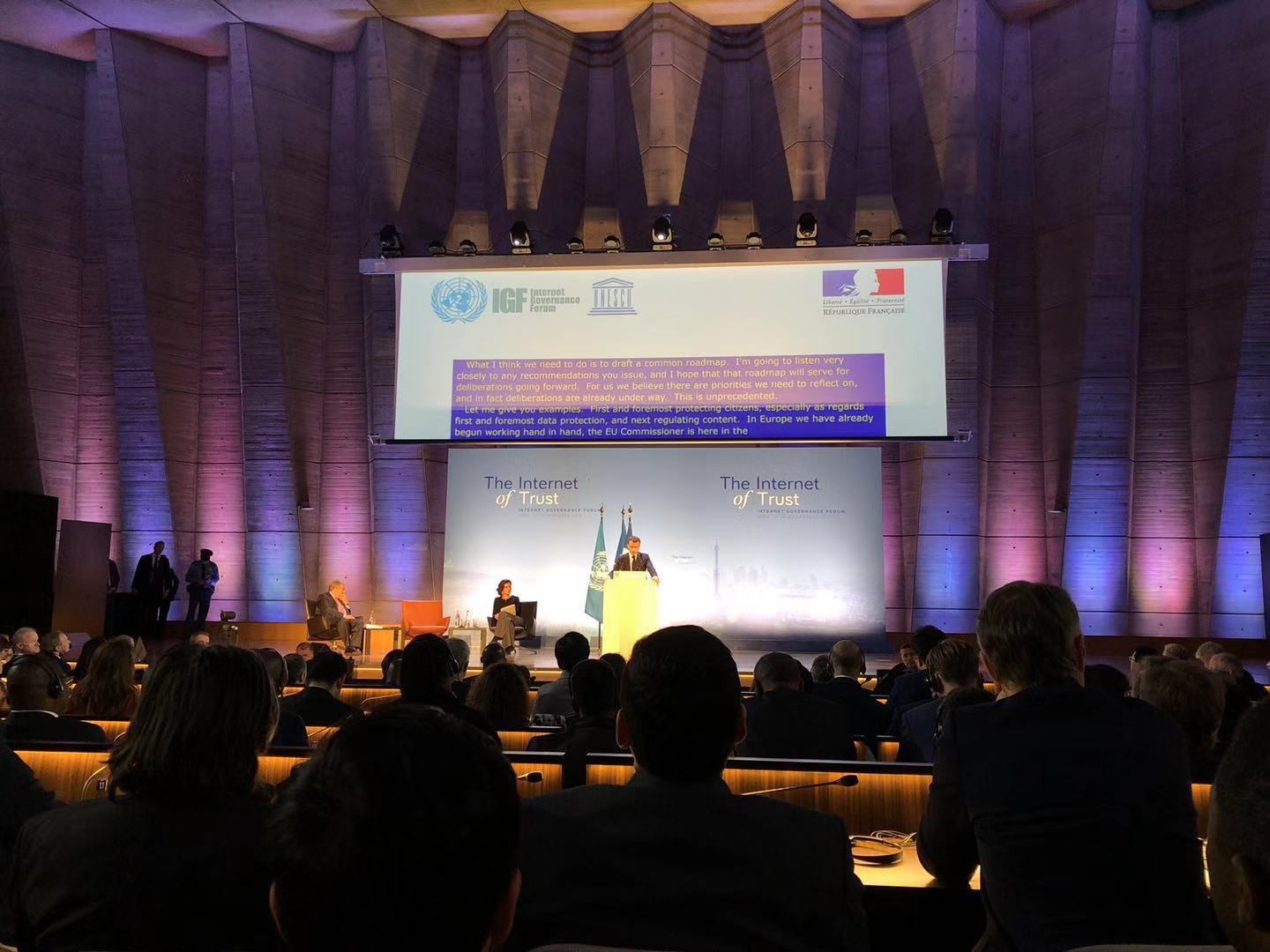The UN Internet Governance Forum, held annually since 2006, was in Paris from 12 to 14 November. Access Partnership were one of many to attend the multistakeholder group, this year themed around the “Internet of Trust” — other attendees included UN Secretary General António Guterres and French President Emmanuel Macron, signalling a renewed desire to overcome the key challenges surrounding Internet governance.
Trust is rapidly becoming the fulcrum around which everything else turns, including issues like online misinformation, terrorism and hate speech, and digital finance and governance systems. Accordingly, the forum saw panel sessions and open discussions between civil society, industry, and government on emerging technologies, cybersecurity and privacy, media and content, diversity, and human rights.
Macron’s Vision for Internet Regulation
“If I may be politically incorrect,” Macron warned attendees at the opening ceremony, “there are two kinds of Internet governance emerging: Californian self-regulation and China’s strong state model.” To the disquiet of some audience members, he rejected both, positing a third model of government regulation of the Internet carried out in cooperation with industry.
Macron’s plan believes that regulation is a necessity, but would encourage stakeholders to help define the terms for this regulation — or be subject to it without a say. To support this vision, he issued the “Paris Call for Trust and Security in Cyberspace,” which envisions government and private sector collaboration to prevent “malicious cyber activities” and is already backed by over 50 countries and over 200 private groups, including universities and tech giants like Microsoft, Google and Facebook. However, the US, China, Russia, Iran and Israel were among those who didn’t sign up.
After previous attempts to regulate cyberspace at a UN level failed, tech backing of the Paris Call may spark another push for agreement. Additionally, France has proved it can bridge the divide between governments and industry, while simultaneously advocating for a European digital tax aimed at keeping the latter in check.
The Internet of Trustworthiness
But is trust really possible? Everyone agrees on the urgent need for cooperation and information sharing, but who is willing to open their “cyber borders”? Russian, Chinese, and American delegations repeatedly reaffirmed their commitment to the IGF approach, but have yet to sign the Paris Call.
Where governments are lagging, the private sector is pushing ahead. They have a crucial role to play in cybersecurity — “80% of critical infrastructure is owned by the private sector” notes Christoph Steck, Director of Public Policy and Internet at Telefonica — and this responsibility is not being shirked. As well as their strong embrace of the Paris Call, the private sector’s Cybersecurity Tech Accord has been signed by 60 leading tech companies, aiming to ensure cybersecurity for users and customers through self-regulation.
From cybersecurity, the discussion proceeded to data protection and the emergence of digital identity systems. Digital ID can be used for government and law enforcement, but also for private purposes — such as accessing your phone, your bank account or even getting into your car. According to Solomon Brett, Executive Director at Access Now, “digital identity is the building block of the digital economy and digital society” but also poses the “greatest risk to human rights” through a gradual loss of privacy, misuse of data, and data theft.
Since digital ID will encompass all sectors and could be the entry point to all personal devices and accounts, a single hack could lead to irreversible consequences. In India, for example, digital ID was introduced for welfare entitlements but later expanded for commercial uses, resulting in mismanagement and data theft. The programme was eventually scaled back, but the damage was done. Creating digital identity without a proper cybersecurity and data protection framework in place is a “recipe for disaster.” Lawmakers need to define the scope of use for biometric data and create the proper mechanisms to protect citizen data before launching such programmes.
The development and adoption of new technologies is taking place at an unprecedented pace: “90% of the data since the beginning of humanity has been created in the past few years. The technological transformation is also a cultural and philosophical one,” said Macron. Artificial intelligence, 5G, blockchain, and the Internet of Things have the potential to bring social, cultural, and economic benefits but also create new risks and challenges for societies, policy-makers, and businesses. One thing is certain: emerging technologies must be guided by well-informed, comprehensive, and sustainable policies that drive innovation and protect human rights. Could we find this balance? Could France lead this new digital revolution?
Author: Ivan Ivanov, Marketing Manager, Access Partnership





